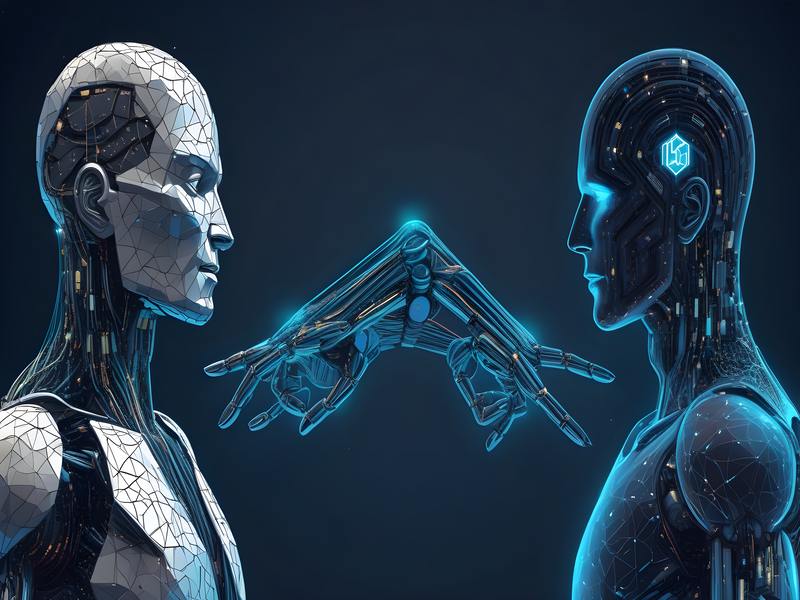Artificial Intelligence (AI) is making steady progress and creating space for endless possibilities. It is making things easier and faster in many areas but raising concerns in others. Putting relevant rules in place is what will help keep the risks under control.
This is where blockchain can play a major role in implementing those rules and creating a solution. Its technology is decentralized by nature and has a reputation for being secure.

Key Takeaways
- The collaboration aims to strike a balance between responsibility and innovation in AI
- Security level up: Blockchain enhances security, safeguarding AI systems and data from unauthorized access
- Governance issues, technical complexities, and limitations of blockchain pose challenges
- Global standards and regulations are essential for effective governance and oversight
- Integrating blockchain into AI regulation is crucial for fostering responsible development and ensuring a secure and ethical AI landscape
The Partnership Between Blockchain and AI Governance
The purpose is to balance responsibility with innovation. AI can be extremely helpful but dangerous if not put under control. That’s where blockchain’s steady accounts and transparent business come in handy. This partnership is an important step towards better AI regulations and responsible norms.
The role of Blockchain in AI regulations is to focus on features of decentralization, and stability. This will improve transparency, security, and efficiency.
Main Perks
Take a look at some of the benefits of blockchain and AI integration.
- Security level up: Blockchain keeps AI systems and data safe from meddling and unauthorized access
- Transparency: Blockchain’s transparency allows everyone to check if ethical standards are being followed
- Decentralized control: With decentralized control, there’s less risk of power being concentrated in the wrong hands, leading to a more democratic AI landscape
- Automated compliance: Automated compliance makes regulatory processes smoother, reducing the chance of errors
- Adaptability: Regulations can keep up with all the latest tech developments thanks to blockchain’s adaptability
What are the Challenges?
There are some drawbacks to the integration. Mostly governance issues, technical stuff, and limitations of blockchain. Security and data privacy is always an issue since no platform, let alone integration of two is 100% safe.
Enforcing regulations globally and navigating different jurisdictions – that’s a whole other topic which is one of the most complex parts. We’ll keep an eye on this collaboration and see how it develops further.
Some real-life examples that can show how cool it can be to combine blockchain and AI in different areas are healthcare, finance, and even smart cities. Since AI is not a shiny new toy, the integration with blockchain means we get to see some fancy, cutting-edge technology and improved security. On top of that, we need global standards and regulations to keep everything in check.
That aspect can be covered if countries can work together to set the rules, encourage innovation, and connect the digital distance.
Will Blockchain and AI Reach the Perfect Balance?
It’s not an easy task, balancing innovation and control, especially when you’re dealing with AI – a vast platform with almost no limits. However, it is a team effort that includes policymakers, researchers, technologists, and regular people.
The rules that will be set in place need to promote innovation, make sure to follow ethical guidelines and keep values in check.
Making blockchain a part of AI regulation isn’t just a good idea – it’s something we all need to get behind. It’s going to take a mix of different skills and ideas to make it work, but hey, we’ve got this!
Disclaimer
FAQ
Blockchain technology offers a decentralized and secure framework, enhancing the governance and transparency of AI systems by enabling traceable and tamper-proof record-keeping.
The integration boosts security against unauthorized access, increases transparency for ethical compliance, and promotes decentralized control, reducing power concentration risks.
Absolutely, blockchain enables automated compliance mechanisms, streamlining regulatory processes and minimizing errors, thereby ensuring AI systems meet legal and ethical standards efficiently.


